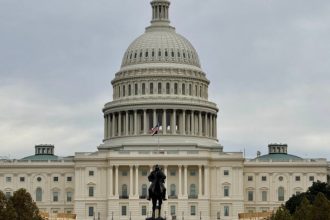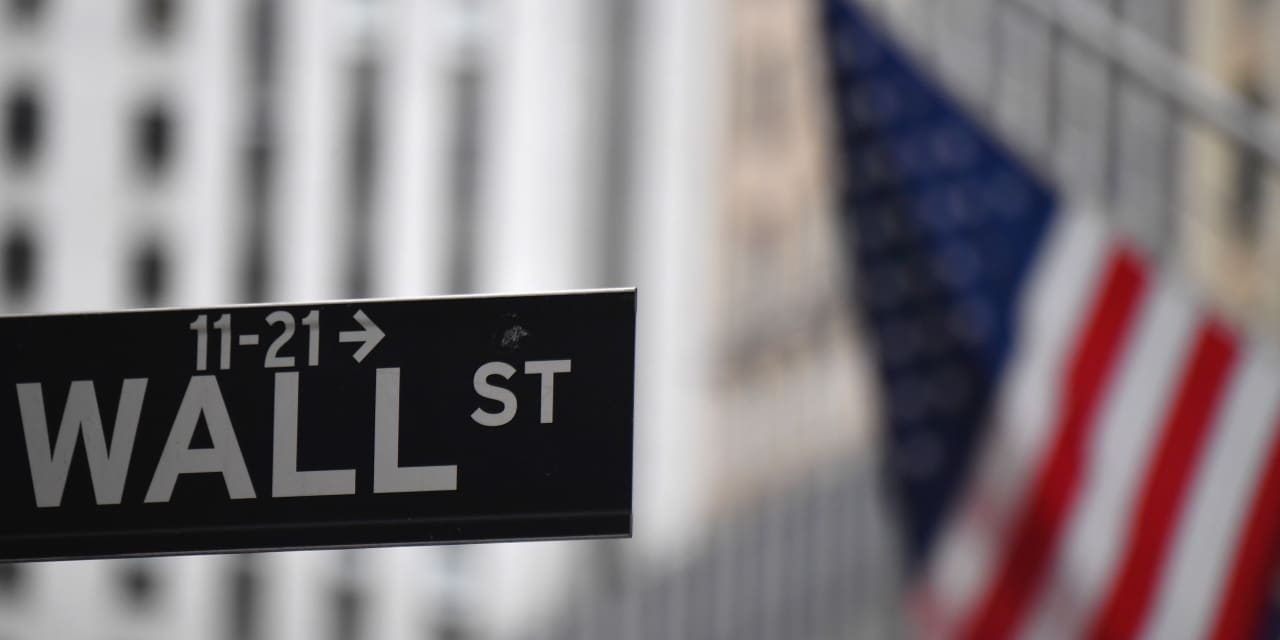U.S. stocks closed higher Wednesday, building on the previous session’s blockbuster rally sparked by subdued inflation data that bolstered hopes for an economic soft landing that would see the Federal Reserve reduce borrowing costs as growth holds up.
What happened
-
The Dow Jones Industrial Average
DJIA
rose 163.51 points or 0.5% to 34,991.21, its highest close since August 14. The index has risen for four consecutive days. -
The S&P 500
SPX
gained 7.18 points or 0.2% to 4,502.88, its highest closing value since September 14. -
The Nasdaq Composite
COMP
advanced 9.5 points, or less than 0.1% to 14,103.84
The S&P 500 soared 1.9% on Tuesday for its biggest one-day percentage gain since April 27, while the Dow surged 490 points, or 1.4%. Both indexes scored their highest close since Sept. 14. The Nasdaq Composite jumped 2.4% for its highest close since Aug. 1.
What drove markets
“Inflation — for now — is coming back down and the economy — for now — continues to grow at a robust pace, so the only logical direction for stocks is higher,” said Chris Zaccarelli, chief investment officer for Independent Advisor Alliance.
“The widely forecast 2023 recession never materialized and although each year we escape recession brings us one year closer to the next one, forecasters should be humbled and have lower conviction for their 2024 recession calls,” he said in emailed comments.
Data on Wednesday showed the producer-price index fell 0.5% in October. Economists polled by the Wall Street Journal had forecast a 0.1% advance. The core producer-price index, which excludes volatile food and energy prices and trade services, rose 0.1% in October, down from a 0.3% gain in the prior month.
U.S. retail sales fell 0.1% in October and dropped for the first time in seven months, but the decline is unlikely to last as the U.S. enters the holiday shopping season. Economists polled by the Wall Street Journal had forecast a 0.2% drop in sales. It was the first negative reading since March.
Analysts said the PPI data held little sway after the robust reaction to Tuesday’s CPI readings.
But the wholesale-inflation update alongside the retail-sales figures “supports our view that consumer price inflation will continue to fall more rapidly than many expect, even as activity in the real economy holds up under the weight of higher rates,” Paul Ashworth, chief North America economist at Capital Economics, said in a note.
The rally, which pushed the S&P 500 back above its 100-day moving average and took its gains for the month to 7.3% and 17.2% for the year, came after a consumer-price-index report showed inflation in October surprisingly flatlined. The annual pace of retail inflation also was cooler than expected, at 3.2%.
The signs of easing price pressure have raised hopes that not only is the Federal Reserve now finished raising interest rates for this cycle, but that it is now more likely to trim them next year. Markets are pricing in a 47% chance of a 25-basis-point rate cut to a range of 5% to 5.25% in May, up from a 32% chance a month ago.
Borrowing costs have tumbled, with the 10-year Treasury yield
BX:TMUBMUSD10Y
now down nearly 50 basis points from the 16-year high of just above 5%, touched last month.
Especially rate-sensitive parts of the equity market have been revived, with the Russell 2000
RUT
index of smaller companies jumping 5.4% on Tuesday, its biggest gain in just over a year.
However, some observers cautioned that the market’s latest ebullience was a bit much. “I think people are overreacting to short-term numbers,” JPMorgan CEO Jamie Dimon told Bloomberg TV on Tuesday. “I’m afraid inflation might not go away that quickly,” and while the Fed was right to halt rate hikes for now, “they might have to do a little bit more,” Dimon said.
Roosevelt Bowman, senior investment strategist at Bernstein Private Wealth Management, echoed the point. “Markets probably got a little ahead of themselves yesterday, assuming that inflation will continue to move at that pace lower,” Bowman said in a call.
“Our view was that the progress will continue, but at a slower pace than maybe what the market expects,” Bowman said.
He expects the annual rate of inflation to be at around 3.8% by the end of this year, and at around 2.5% by the end of next year.
Meanwhile, broader market sentiment was underpinned Wednesday by news out of China. Data showed consumer and industrial activity in the world’s second biggest economy expanded more than expected last month, while reports that Beijing was planning a 1 trillion yuan ($137 billion) support package for the property sector also encouraged investors.
Companies in focus
-
Target Corp. shares
TGT,
+17.75%
jumped 17.9% after the discount retailer reported a surprise increase in third-fiscal-quarter profit, beating projections by a wide margin. -
VF Corp.
VFC,
+14.13%
was up another 14.1% on Wednesday. JPMorgan upgraded the clothing maker to neutral from underweight, saying new CEO Bracken Darrell has already executed four of the five turnaround tenets from his previous stint running Logitech.
Read the full article here





